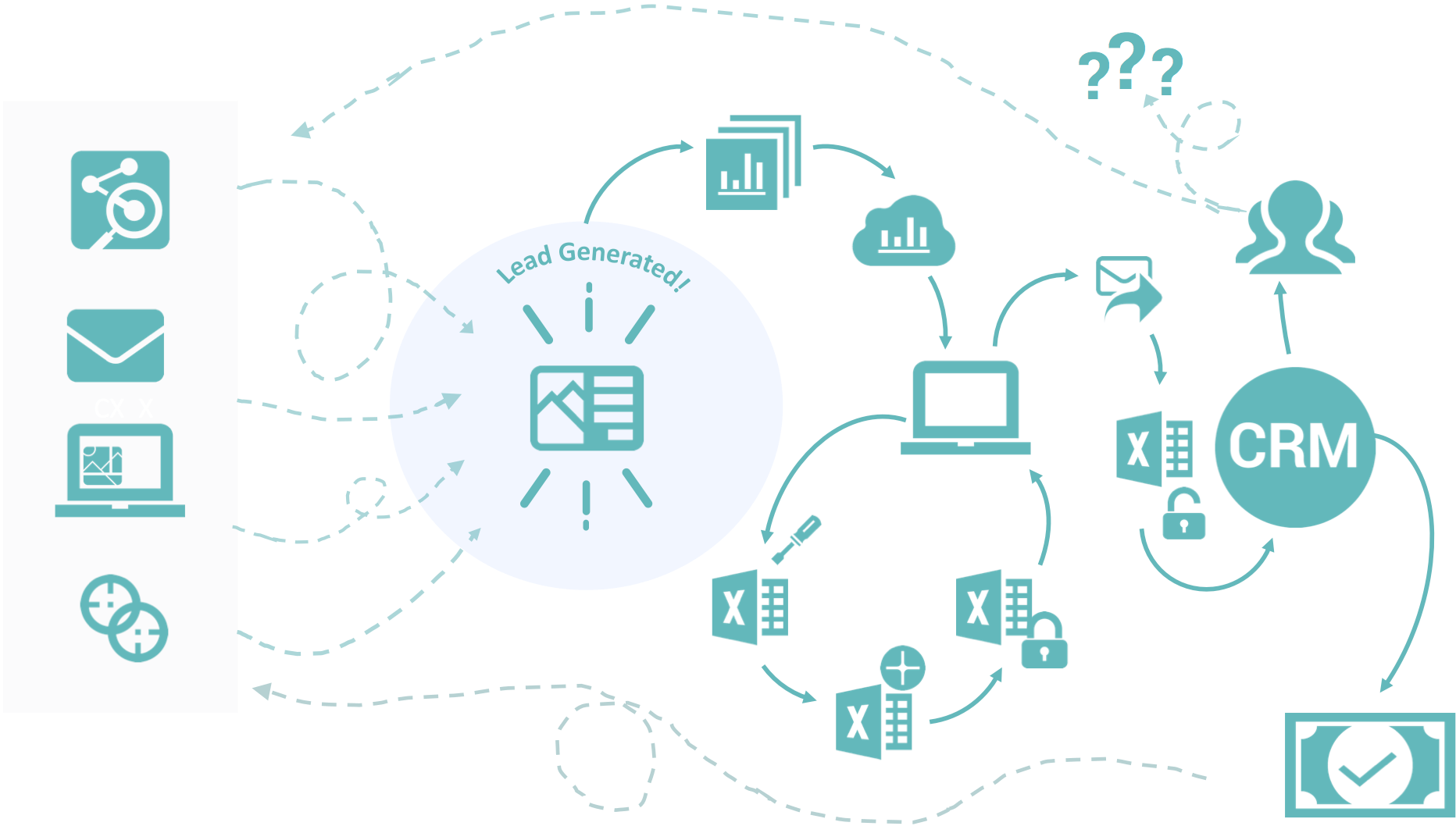Here’s a question: What do we really want from our lead generation process?
Ask any marketer what they want from their lead generation, and you know they’ll have an answer at the ready: better lead quality, scalability, a more targeted approach (featuring ABM).
But three weeks ago, we received a call that left us surprised and impressed. It was from a potential customer who had a completely different ambition: one that couldn’t be measured, but which would have measurable results.
When we asked this team what they wanted to achieve with their lead generation, they responded with this:
“We want to be more aggressive in our approach – and to do that, we really need to become confident in our overall lead generation process.”
As soon as we heard this, we knew that they were on the right track to success.
Why Do We Care About Confidence?
The ‘need’ to be confident really resonates with us. Why? Because great lead generation marketing is founded on being certain about two things: firstly, that you understand your entire journey and, secondly, that you can see the opportunities to improve that journey.
However, this sense of security is rarely given the recognition it deserves. Look at awards categories; you’ll see ‘Best ABM Strategy’, ‘Most Innovative’ or ‘Best Limited-Budget’. Confidence is never mentioned – but it underlies every great innovation, every surge in growth and every successful drive for efficiency.
Confidence is key, because only when you have faith in your process can you begin to fine-tune your strategies and become more aggressive in your approach.
So if confidence is key, how do we answer the challenge of creating it?
…What are the keys to creating confidence?
The 3 Keys To Confidence In Your Lead Generation Process

1. Clarity
In order to trust your process, you have to understand how your entire end-to-end journey works (including which systems are integrated).
Don’t be afraid to untangle a knotty system and solve the hidden problems within it. Remember, your process is the foundation for your future growth – look after it.
A good, albeit a very basic, test for this is if you can explain your end-to-end process on the back of a napkin. If you’re struggling to do this, then 9 times out of 10 it’s because of all the complicated manual steps in the way.
For example:

The type of lead generation map you don’t want to end up with: untracable journeys, manual processes and XL spreadsheets.
Don’t Underestimate The Impact Of Manual Processes
Creating a clear process and driving efficiency go hand in hand. This makes manual processes a particularly painful complication:
Unlike the real-life journeys moving across your campaign, manual processes are inherently static and isolated elements in your process. Even with continual maintenance, they stall sales, reduce efficiency and remain the main cause of unseen mistakes.
Moreover, the end-to-end process needs to be clear, consistent and dependable. Removing manual sorting methods will both clarify the bigger picture and create a better understanding of the overall process.
Put Performance In Plain Sight
The end-to-end process needs to be clear, consistent and dependable. The same goes for being able to see statistics across your campaign. If you feel conversion rates or your media spend are anything less than reliable and in plain sight, you need to start asking ‘Why?’.
This is important beacuse, just as you should be able to clearly map your journey, you should be able to track performance as it progresses across that map. You don’t want to be pulling up spreadsheets or chasing accounts – you need to see exactly where your budget is going (and where results are coming from) in clear visual terms.

2. Control
Confidence is just as much about doing as it is about feeling. It’s about responding to change, moving that budget or acting on that hunch. And a good process supports this; it should empower you to make things happen.
If you want to adjust a campaign, manage spend or update a record in your system, you should be able to do just that – instantly and independently.
Having immediate control is especially significant when time is of the essence, and lead generation is an especially time-precious form of marketing.
How Quickly Can You Make Campaigns Pivot?
Ask yourself this, how easy is it for you to alter your strategy once you’ve identified an opportunity?
All too often, we’ve worked with customers who’ve struggled to re-allocate budget without involving more than 3 people, channels or partners. That’s a direct obstacle to revenue, hidden in your everyday routine.
You shouldn’t have to pick up the phone or wait for someone else’s office hours to make changes when you need to.
In short, being in control is often about having the right controls: ones that are easy to use, at the heart of the campaign and close to hand.
Good controls mean direct access to your strategy. You shouldn’t have to pick up the phone or wait for someone else’s office hours to make changes when you need to. If you can own the controls yourself (or even secure a log-in to external tools), then you’re empowering your team with the freedom to react.
Securing direct access to your strategy is also a smart business move, beacuse it demonstrates that you’re in control, as well as showing your network that you trust your own initiative.

3. Conversions
To truly be confident in your process, you need to see proof that it’s working.
In many ways, this point is connected with that first C – Clarity. Whether it’s conversions, the number of valid leads or revenue earned – you want clear evidence to reconcile those wins with the effort you put in.
But it goes without saying that you need to choose your metrics wisely. If your process is designed to deliver Volume, then CPL is the right metric for you, but if you’re looking to raise quality then you should think about your consider Cost per Valid Lead and hone in on that.
Proving And Improving
You also need conversions to prove and improve your approach:
Conversions are more than just a marker of your success: They’re also the hardline feedback you need to grow your confidence, build your knowledge as a marketer and fuel your future campaign.
Back to the idea of confidence: You need to trust your process, and that means trusting the methods you use to monitor it. So when you build your new, ‘clean and clear’ reporting suite, make sure it also includes a way to trace the source of those metrics (i.e. which channel is thriving, which one is holding you back).
Yes, it can be unnerving to ask your fundamental measures of success to expose your best and worst performing strategies, but that’s what confidence is about! It’s where the best, most fearless marketing happens.
Above all, you’ll be doing yourself a favour by building a platform that helps you learn what works and what doesn’t. Do you want to be more aggressive in your approach? Then you have to commit to building a better system and, ultimately, a system that’s better for you.
To Summarise:
1. Being confident in your process is not necessarily about having the biggest or most advanced lead generation machine. It’s about achieving clarity, control and conversion.
2. Champion clarity wherever possible – in a complex process, confusion will cost you.
3. Create control by strengthening your ability to act on campaigns (not just as overseeing them)
4. Conversions are the key to supporting your convictions – set your metrics accordingly
5. Don’t be afraid to set ‘immeasurable’ ambitions – they’ll help you ask the right questions on the way to measurable successes.







